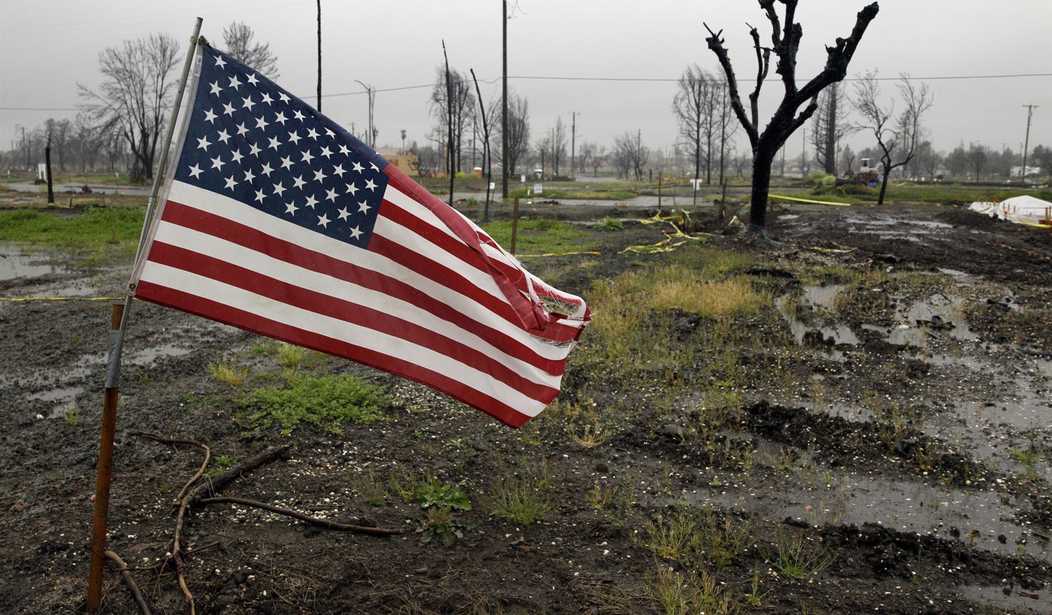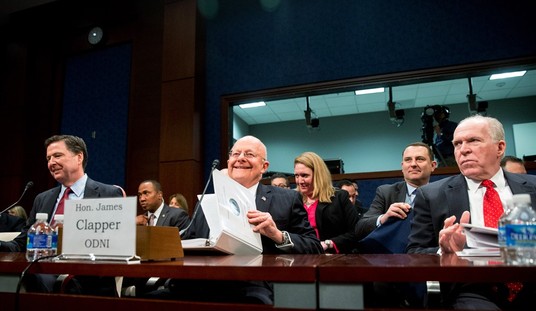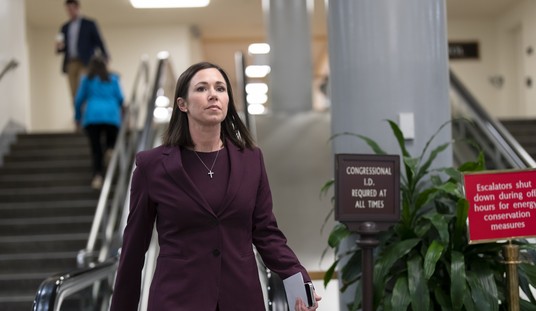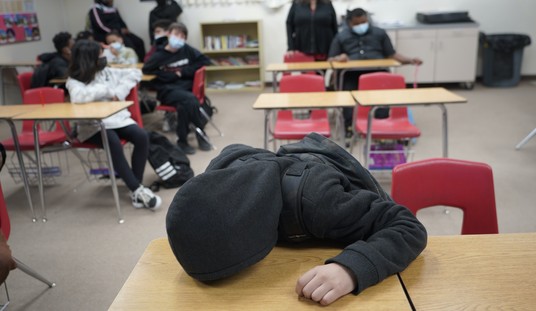The opinions expressed by contributors are their own and do not necessarily represent the views of RedState.com.
Good morning from the ever-so-frigid and blue state of Michigan.
The temperature here in this part of the United States on this Sunday morning is a brisk 31° with a potential high of 40 later in the day. I’m labeling it as “brisk” because, while it’s not the bone-chilling cold we can get here, that temperature grabs your attention when you walk out the door.
However, that is not describing the BLUE part of Michigan. That part I’m referring to is reserved for things like this in previous articles that I have written. One Week After the Michigan GOP Convention, I Have These Fun Observations. Michigan is truly a DEEP BLUE state even when the temps are in the mid-’90s and opposite of the weather outside today.
I’m sure most people reading this article are not very interested in the weather report of the state that I reside in other than possibly a passing curiosity. That is the natural order of things and even when weather events occur anywhere in the United States, we all just usually give a passing glance to it.
However, something got me thinking this past week after the latest snowstorm breezed across the country and in my part of the world produced not snow but ice. Michigan is not unaccustomed to having weather systems that cause freezing rain and ice to land on our roads, homes, and power lines. Yet this storm hit us in my hometown a little bit differently because those of us who usually don’t lose power did.
So, like most Americans, it took something to happen to me to get me to start thinking about how this has affected other people in the past. Now, this is not the first time that I’ve ever lost power but as you get older, you tend to look at things much differently and ponder different outcomes. Also, as a caregiver, that shines a totally different light on relying on the most simple and basic things — like assuming when you flip a switch, a light will come on.
So, when I read a story today in my local paper that a million people in Michigan were left without power for some amount of time since Wednesday, it grabbed my attention.
From Detroit News
DTE Energy reported that just over 91% of customers had power at 12 a.m. on Sunday. President and CEO Jerry Norcia previously promised to have approximately 90% of its customers back with power by the end of Friday.
Around 230,228 DTE and Consumers Energy, customers remained without power by 12 a.m. Sunday after Michigan’s worst ice storm in 50 years left over a million people without power. In some areas over half an inch of ice coated everything from trees to wires, bringing down branches and utility poles across southeast Michigan.
DTE Energy Co. and Consumers have been working to clear downed wires and restore power to most affected clients by the end of the day Sunday.
DTE reported 180,551 customers without electricity at 12 a.m. Sunday. This is the second-largest storm in terms of the number of DTE customers impacted in the utility’s 120-year history, Matt Paul, executive vice president of Distribution Operations at DTE, said in a virtual press conference Saturday.
Now, I can attest to seeing the repair crews out and about over the past two days, seemingly almost everywhere, 24/7, working as diligently and fast as possible to restore power to all of the people who have been affected by this. They did an excellent job here in my area and I’m incredibly thankful for those people who have been working non-stop to get the power restored.
Yet, with some of the man-made disasters, like in Ohio with the train derailment or here in Michigan with the Flint water debacle, we see the government’s slow and sometimes inept response. Seeing this in real-time and up close does not inspire confidence in my overlords.
So, what if the United States were to have a large electrical blackout like the one that affected the east coast in August of 2003? Thankfully, that happened in the summer and in most places lasted no longer than 18 hours. What would happen if 50, 60, or 70 million people on the east coast were all of a sudden left without electricity in the middle of winter, like in the summer of ’03 — but for a longer period of time?
I sincerely doubt the United States government would be able to mobilize quickly enough to help citizens stranded without a basic tool that we take for granted each and every day like electricity. Without electricity you can’t keep food cold, medicine that needs to be refrigerated will go bad, and the gas that is needed to fuel cars to move around will be stuck in the ground because pumps won’t operate.
I’m not trying to go all doomsday Mad Max scenario here, but it is something that I was forced to wonder about while looking over my neighborhood that had no power and wondering how everyone was going to get by while waiting for the power to be restored.
The craziest solution and yet the most simple one that I was able to come up with was this.
Take advantage of the time that you have now, while the lights turn on easily and surround you, to come up with some sort of plan that does not rely on our federal and state government to be there smiling with a helping hand. Be prepared to take charge for yourself and others, because Joe Biden is not going to be leading the charge to help out his fellow Americans.
Just ask the people of East Palestine, Ohio how willing he has been to help them. That will tell you all you need to know.
You can always let me know any questions, comments, or concerns you may have by checking out my bio RIGHT HERE and letting me know via email to social media platforms. If you get really creative, I may mention you on my radio show or Facebook live events.














Join the conversation as a VIP Member